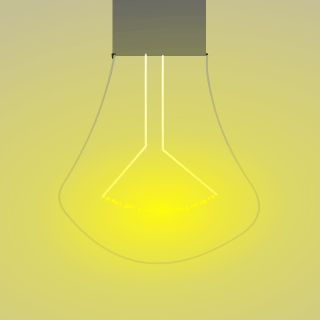

















Works at a residential alternative high school in the Himalayas SECMOL.org . "Back home" is Cape Cod, E Coast USA.
 3
3








Steve Farmer wrote:I'm confused as to what you are trying to protect against. If the power is not surging, only dropping, then what is the risk of damage?
If it's DC equipment you are trying to protect then these already have rectifiers in their power supplies, which provide some basic smoothing.
You'd need 2.4KW thru your 12V DC to get 2KW after stepping up and inverting. That's 200A. So a "little capacitor" wouldn't last long.




 1
1




For a weird set of reasons, taking it up with the electric company simply doesn't work.
 1
1




 1
1




...take from me the spirit of sloth, despair, lust of power, and idle talk




Rufus Laggren wrote:Maybe first, before spending time "solving" the problem, determine which items are truly in danger. And what type of power problems will actually cause damage. Information might be available from the manufacturers or from knowledgeable repairman (if you can find them near you or on the net). There are forums where engineers talk casually about their problems where you might ask about the actual damage certain equipment is likely to encounter.











João Carneiro wrote:If i had this problem, i would get a nice voltage stabilizer for my premium electronic
João Carneiro wrote:I would also make a formal complaint to the utility company as they are bound






















 ). Maybe running on an inverter-style generator would be a handy solution?
). Maybe running on an inverter-style generator would be a handy solution?






Devaka Cooray wrote:Considering the potential loss in case of a worst case, which includes the cost of appliances and more importantly the data stored within them (of course I do keep backup's, but....), I think I would be okay with a bit heavy budget.
Going offgrid is fine, except the batteries in my UPS wouldn't last that long (as the fluctuation usually happens all the way from 7am to 8pm). Maybe running on an inverter-style generator would be a handy solution?











Life is too short or my list is too long, not sure which.
 2
2









 1
1




 1
1




João Carneiro wrote:Devaka, there are many useful contributions on this thread. Wise words have been spoken.
Please do understand that you can get things off the shelf that offer diferent solutions to diferent problems. But diferent things will be present on diferent shelfs around the world. Maybe your problem can be solved with a simple voltage regulator, maybe not. Maybe you can solve it using a managed UPS and configuring it properly. But it could be in such way that your input is so dirty/unstable that you have to resort to turn it to DC and back to clean sine AC...
There are also other considerations on energy efficiency, because energy transformations have an energetic price, so there is loss at every step of the way, this can make your electricity bills increase.
DIY at this level is cool for people who know what they are doing. VERY EXPENSIVE errors can occour... even to people that know what they are doing.
But consider your budget and options. You may even get to realize that since you are investing you can go offgrid with just a bit more.
.




João Carneiro wrote:An online(double conversion) UPS, keeps things going on battery power, when the grid power is present, it continuously charges/feeds the battery's circuitry, when it goes out, it runs on battery until depletion.
João Carneiro wrote:Are you into this sort of thing or just want a solution off the shelf?
 . For now, I'd definitely be looking for a quick and off-the-shelf solution.
. For now, I'd definitely be looking for a quick and off-the-shelf solution.
Hank Roberts wrote:If you want to buy off-the-shelf hardware, look for a "power conditioner" or "line conditioner".








Andy Lyke
Electrical Engioneer





|
It was a tommy gun. And now this tiny ad insists on being addressed as "Tommy":
Learn Permaculture through a little hard work
https://wheaton-labs.com/bootcamp
|







